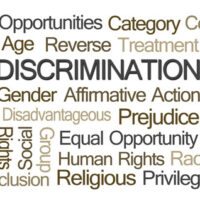Hair Policies: An Increasing Source of Discrimination in The Workplace

An increasingly important issue in labor and employment law, and employment discrimination claims specifically, involves hair policies that employers may have in place limiting certain types of hairstyles that employees can have. While some might maintain that they are in place for safety or professional reasons, courts and legislatures are finding more and more that these policies have a discriminatory impact and are passing or introducing explicit laws to prohibit them.
Florida is one such state that has introduced a “CROWN Act,” which stands for Creating a Respectful and Open World for Natural Hair. These laws ban discrimination based on hairstyles and the policies that discriminate against those with natural hairstyles.
Why Companies Have Hair Policies in Place
Companies may have a variety of reasons why they feel that these restrictions are a business necessity and job-related, including but not limited to the following:
- Ensuring that a particular culture of the organization is reflected;
- Having particular images in mind when it comes to what is and is not professional; and
- Wanting to ensure that employees working near chemicals, food, or machinery have short hair for health or safety reasons.
Unforeseen Consequences
However, many employers likely did not realize that there were unforeseen consequences associated with some dress codes; consequences that could negatively impact employees’ health. For example, in order to comply with certain hair dress codes, a number of employees have had to undergo chemical or heat hair straightening treatments, which can end up having long-term toxic impacts on their health.
Even Without Florida Passing A CROWN Act, There Are Already Federal Implications
Another problem with these policies is that they can end up having the effect of discriminating based on race, which impacts Title VII of the Civil Rights Act of 1964. The Act bars employers from enacting policies that affect protected classes of employees, which includes anyone affected based on color, national origin, race, religion, or sex. This is because a number of the policies specifically prohibiting certain types of hairstyles end up prohibiting particular types of locks associated with African-Americans, Africans and Caribbeans. In addition, particular grooming guidelines could end up discriminating based on religion or disability; for example, Sikhs sometimes allow their hair to grow certain lengths, and policies that require someone to be clean-shaven could aggravate certain skin conditions, which could implicate some disabilities.
Why You Should Contact an Employment Lawyer
Employers working with labor and employment attorneys to ensure that there are anti-discrimination policies in place – regardless of whether/when Florida passes its CROWN Act – is an intelligent way of guarding against some of these negative consequences. It also helps to include the intent behind having the policy in place so that those who have historically felt discriminated against know that their choices are protected. And if you already have a policy in place, it is always a good idea to review and update it, especially given that the law is constantly changing. It is always a good idea to take another look at policies with the help of an attorney and decipher what is truly necessary for business purposes and what is perhaps more of a personal decision.
If you have suffered from discrimination in the workplace, or are a Florida employer who has concerns and wants to ensure that your policies do not discriminate, contact our Jacksonville labor and employment attorneys at Douglas & Douglas, Attorneys at Law today to find out how we can help.
Resources:
hrdive.com/news/a-source-of-tremendous-discrimination-why-hair-policies-matter/572959/
thecrownact.com/crown-updates
/starting-in-january-employers-are-open-to-new-unpaid-overtime-wage-claims-due-to-new-laws/





